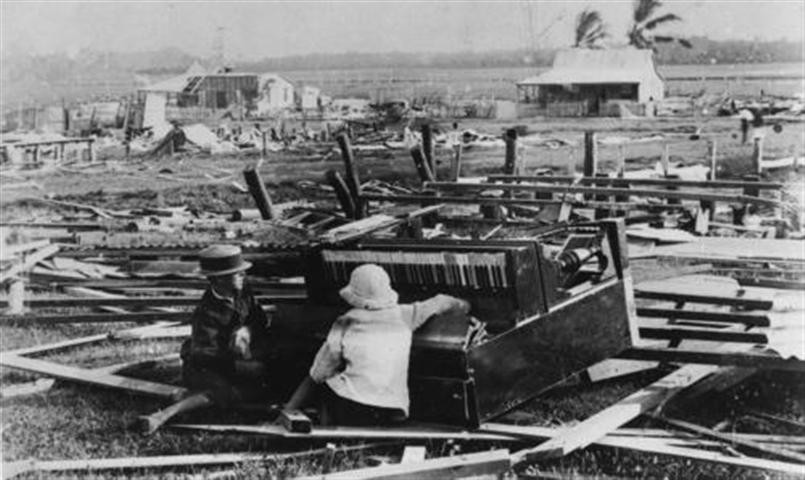Since 1858, there have been 207 tropical cyclones along the east coast of Queensland with the majority hitting North Queensland. There is a strong relationship with Eastern Australian tropical cyclone impacts and the El Nino-Southern Oscillation phenomenon with almost twice as many impacts during La Nina than during El Nino.
Since Cairns was founded in 1876, there have been at least 53 cyclones which have had a reported or measured impact on the city. Cairns comes under the influence of tropical cyclones on average, at least once every two years. One of the first, on 8 March, 1878, almost destroyed the settlement before it had a chance to fully establish.
On March 16, 1911, one of the worst cyclones on record hit Port Douglas and Mossman. By the morning after, both towns were wrecked. In Port Douglas, 2 lives were lost, most of the buildings in the town were levelled and only 7 of the 57 homes were left standing. Sixteen inches of rain had fallen within 24 hours. Cairns had balconies stripped off buildings and roofing iron lost. Verandahs collapsed and some buildings were unroofed. Winds and floods caused widespread damage to plantations near cooktown.

Two children sitting with a badly damaged piano amongst the debris from the Port Douglas cyclone of 1911. State Library of Queensland negative number 164590
Port Douglas's future became uncertain and many of the damaged buildings were never rebuilt. The town continued to suffer hardship after the devastation and the population fell from 325 in 1911 to only 162 in 1933.
The State Library of Queensland holds an extensive collection of cyclone themed photographs which can be easily browsed through our One Search catalogue.
To see the course of cyclones for any given year , see the BOM site. http://www.bom.gov.au/cyclone/about/cyclones-eastern.shtml
Karen Hind, Librarian - State Library of Queensland
Comments
Your email address will not be published.
We welcome relevant, respectful comments.